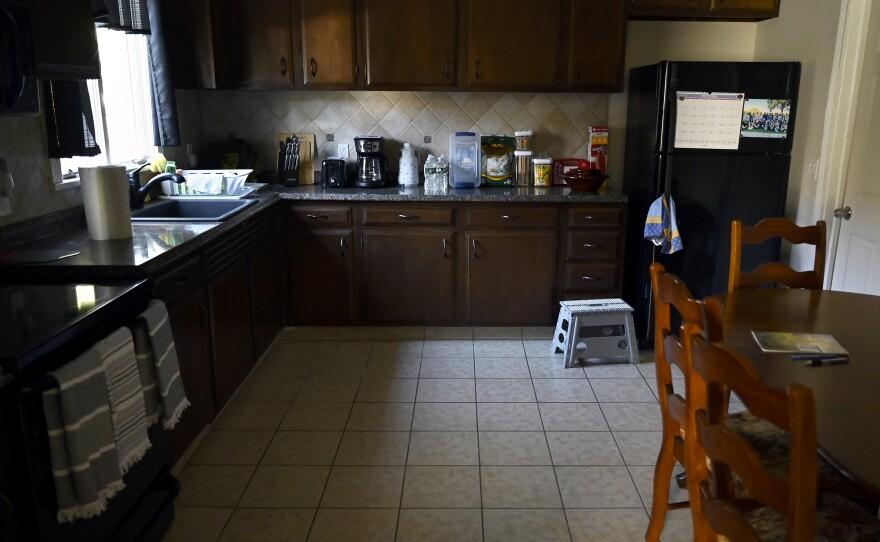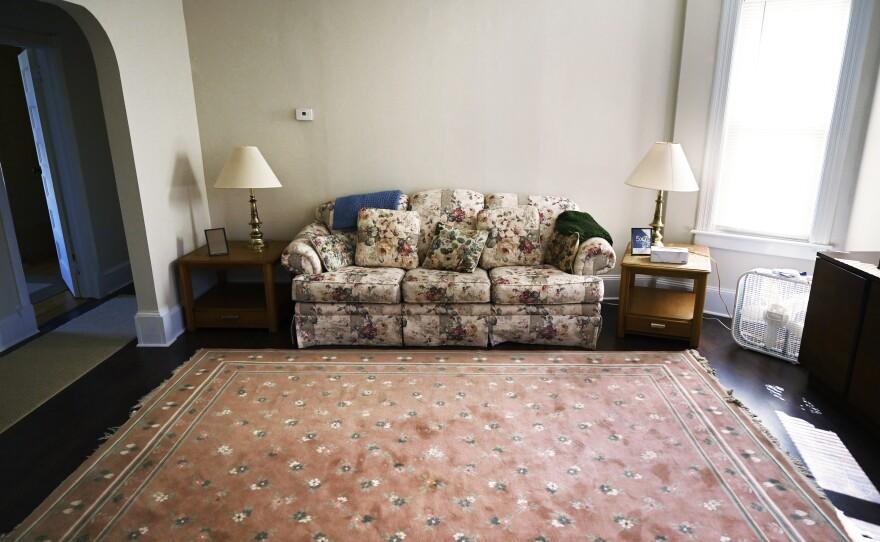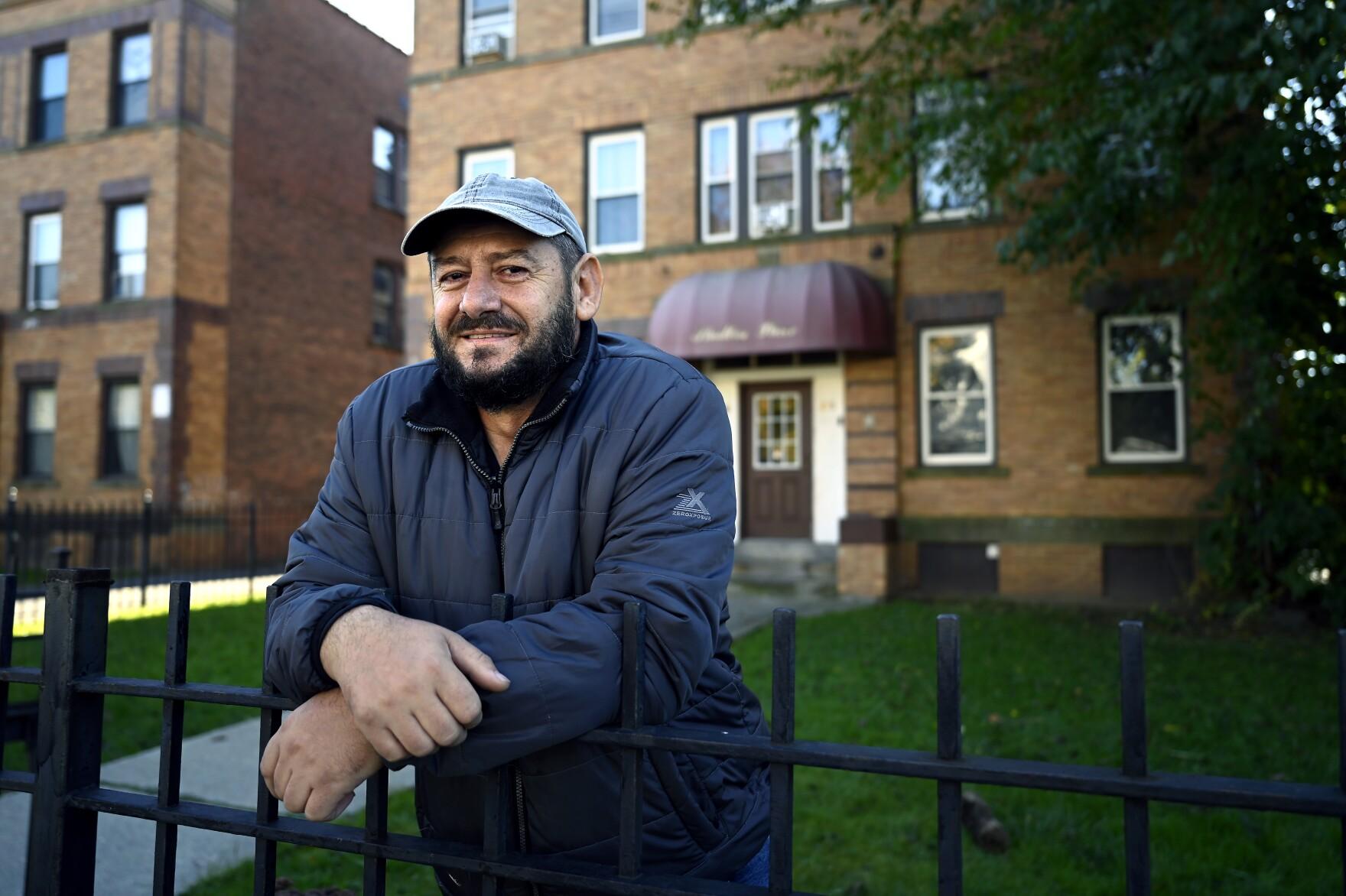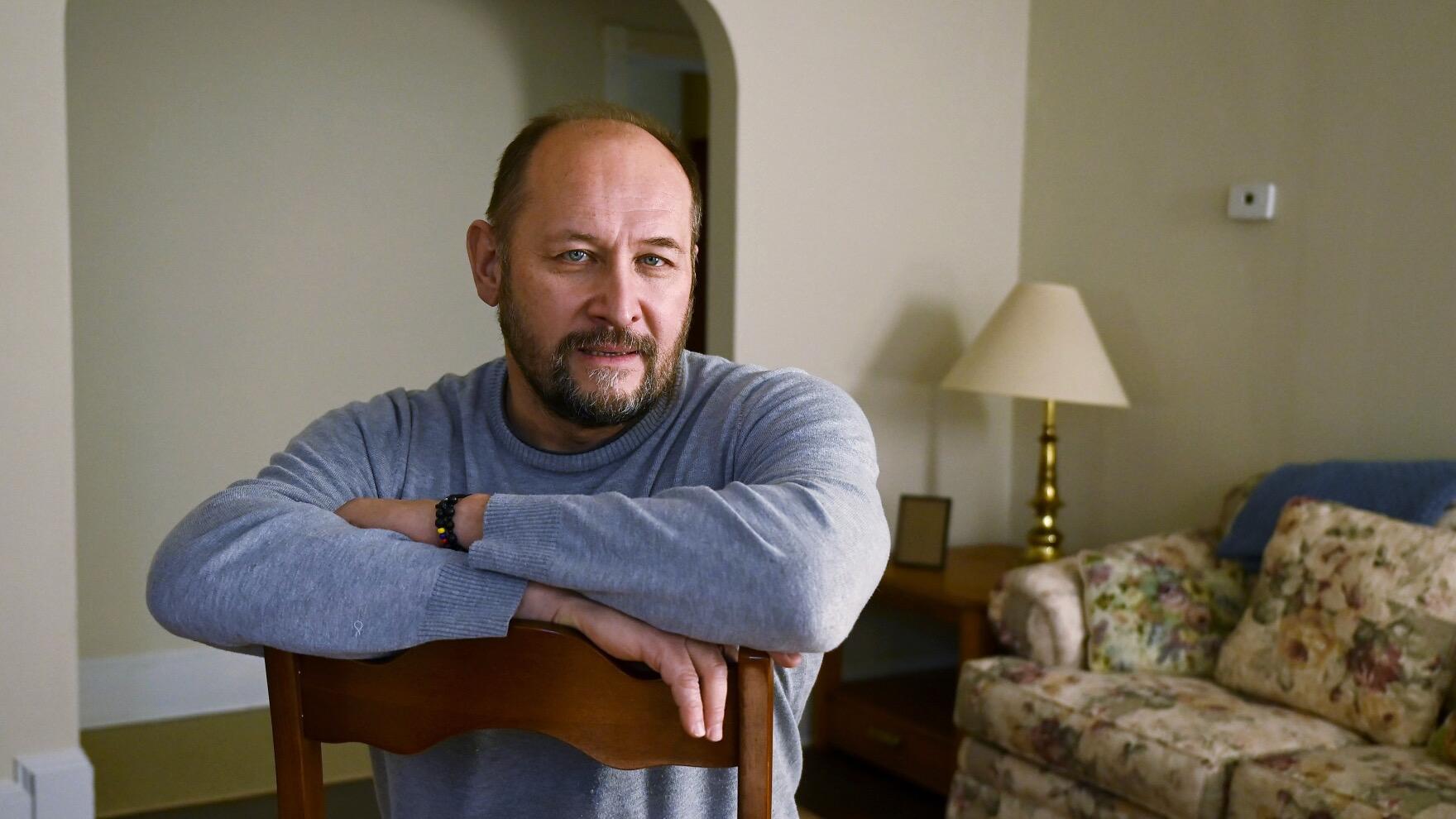‘It’s the American spirit’: These Connecticut landlords are stepping up to help Afghan refugees arriving in the US
Thomas Kania is the grandson of Polish immigrants, people who he says came to the United States for opportunity.
Now Kania, a real estate investor, says it’s their experience that has motivated him to help others looking for a bit of opportunity of their own — newly arrived Afghan refugees.
“It’s basically the American spirit,” Kania said from his rental unit in Middletown’s North End.
It will soon house a family of six from Afghanistan.
“It’s the American spirit that my grandparents felt. It’s the American spirit that subsequent generations have been able to take advantage of in my family. So, I’m really happy to have someone here who basically could take advantage of the American experience, and so, we welcome them as we would any other tenant.”
Related: Some Afghan university students find refuge — and hope — in Kyrgyzstan
Kania is just one of hundreds of landlords pitching in as Connecticut expects to welcome hundreds of refugees over the next couple of months. As military bases temporarily hosting refugees reach capacity, states are being asked to help, according to resettlement agencies. Connecticut alone is expecting more than 500 refugees — a jump since the initial 300 estimated in September. And the number could see another increase. But as Connecticut prepares for the influx, affordable housing has become a challenge.
“We know when we are resettling folks, they have been through a lot,” said Susan Schnitzer, president and CEO of the Connecticut Institute for Refugees and Immigrants, one of two federally approved resettlement agencies in Connecticut. “Many of them have just grabbed their bags, fled their homes, they have been in military bases for weeks or months, and this is the first time they can sit and breathe. We are asking for landlords — large landlords, individual landlords — to contact our agencies and open your doors to refugees.”

At a recent news conference, Schnitzer said over 200 individuals have been able to resettle so far, but as the state gears up for more, there are concerns about a housing shortage.
Kania remembers it like it was yesterday when he got the call about his new tenants. He was showing his vacant unit to about 20 applicants. He said he had about 60 interested customers in total.
“I got a phone call from a broker who asked me not to hang up and explained the situation to me,” he said. “And I said, ‘Sure, come and see the apartment, see if it will work for you.’”
The call was on behalf of New Haven-based resettlement agency Integrated Refugee and Immigrant Services, or IRIS. The unit is across the street from a local elementary school and a short walk from a public bus stop. Kania knew it would be perfect for a family new to America, so he didn’t think twice about it.
The three-bedroom apartment was built in the 1900s, but what’s inside is newer. Thanks to IRIS, the main bedroom has a new bed, a thick winter blanket, towels, a dresser and more. Meanwhile, the two other rooms — ideally for children — have new twin beds, stuffed animals and covers.

The apartment is furnished by IRIS with donations. The organization aims to provide the family a warm and safe apartment from day one. The kitchen is also stocked with essentials.
“The basic food that you would need for a family — things that would be used for an international diet, things like rice, sugar, salt, basic seasoning, cooking oil,” Kania said.
It’s his first time working with a resettlement agency, but he said he has no worries.
“It’s about really showing them the true American experience, and the American experience starts with a home.”
“I don’t understand the hesitancy,” he said. “We all came from somewhere at one point. And they have resettlement agencies working with them. If they were to just dump these people here to fend for themselves, they’d be setting up tents in public parks. But I think that’s not what the intention is of bringing these people here … It’s about really showing them the true American experience, and the American experience starts with a home.”
About 15 miles from Middletown, in Hartford’s Barry Square neighborhood, another landlord is also welcoming new Americans.
Murat Feratovic owns over 30 units in Greater Hartford, and in the last two years, he said he’s helped about 10 refugees resettle through IRIS. He’s drawn to the cause because he’s been in their shoes.

“I come [here the] same as them,” Feratovic said. “I [came] from Bosnia. You come here with a bag with nothing in it, and you start a life here. You leave everything behind. It’s so difficult, but you have to get used to it.”
Feratovic left Bosnia during the country’s civil war in the 1990s. Similar to refugees from Afghanistan, Feratovic was forced to leave his home country. He came here with no credit history or stable income, so he knows how important it is for someone to just give you a chance. He’s able to connect with his tenants on a deeper level and tries to be a resource as much as possible, he said.
“[I] try to point them in the right way because this is a country with a lot of opportunity, but if you use [it] in the wrong way, it’s going to hurt you. [As] much as I can, I help them,” he said. “Here in Connecticut, you need a car to be successful. You get a better job, better opportunity, so I let them know [where] to get a driver’s license and car insurance.”
Chris George is the executive director at IRIS. And while the organization has housing specialists, he often finds himself meeting landlords who are on the fence. He said there’s a lot of hesitancy in the landlord community, and that alongside about a 15% increase in rents this year could lead to a potential roadblock for resettlement. IRIS alone will need at least 100 apartments in both cities and suburbs across Connecticut, and it aims to minimize as much risk as possible for landlords.
Related: The spotlight has faded on Afghanistan, but not the urgency for Afghans seeking safety
“There may be some things that are a little different,” George said. “For example, they don’t have a credit history. But we co-sign the lease. They might not speak English really well. But IRIS is always available to translate. They don’t have jobs when they arrive. But they will get jobs very quickly. And IRIS makes sure that they will pay the rent on time. And in full.”

George says the ideal living space for a refugee family is near public transportation. Rates for an apartment should range between $1,100 a month for a two-bedroom apartment and $1,500 for a four-bedroom, but they can vary depending on the location. The idea is that the family should be able to afford rent if they have to work minimum-wage jobs.
The state has committed to helping refugees with a security deposit and two months of rent — about $4,500 per family of five — and they’ll also be able to apply to the state’s emergency rental assistance program, Unite CT, which offers up to $15,000 in rent assistance. Resettlement agencies have also pledged to help families financially in their first year until they can become independent.
Steven Kaplan understands some of the hesitancy. He’s a new landlord in New Haven and heard about IRIS on the radio. He said at first he had a lot of questions.
“Are they familiar with electricity?” he asked. “Do they know how to work a thermostat and oven? So just like the everyday things we take for granted, I was just worried about their familiarity with it.”

But in working with IRIS, he’s been able to address all of his concerns. He’s now renting to four men from Afghanistan and said it’s opened his eyes to different cultures.
“I took them to Home Depot, which was fun and you know, put on the radio for them, let them hear what our music is like,” Kaplan said. “And they played me some of their music while we were in the car. And so it’s getting to know individuals who otherwise I would never meet.”
Kaplan says he’s excited to grow their tenant-landlord relationship and hopes to sit down soon to share a meal.
“To help out people who have lost everything, and just to give them the comfort of knowing that there’s a safe house for them to live in, warm food, a nice bed,” Kaplan said. “It’s the least we can do as America.”
This story was originally published by Connecticut Public Radio.
